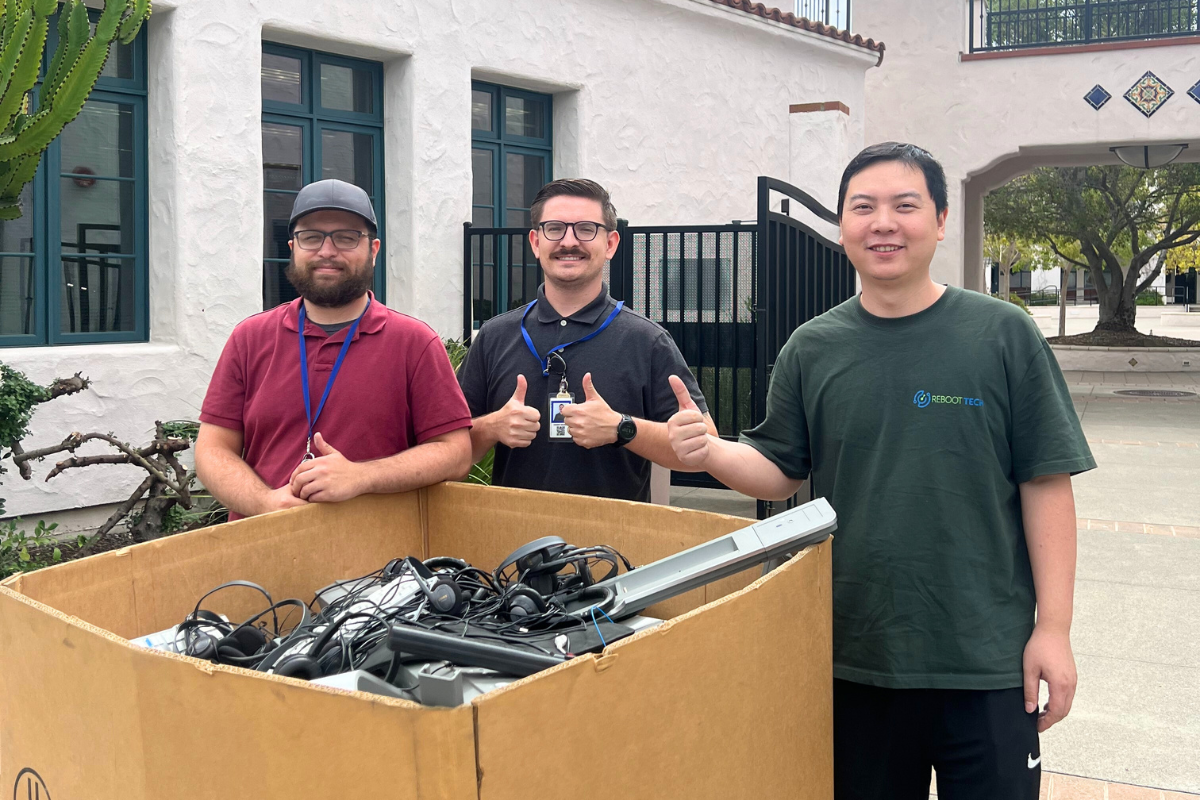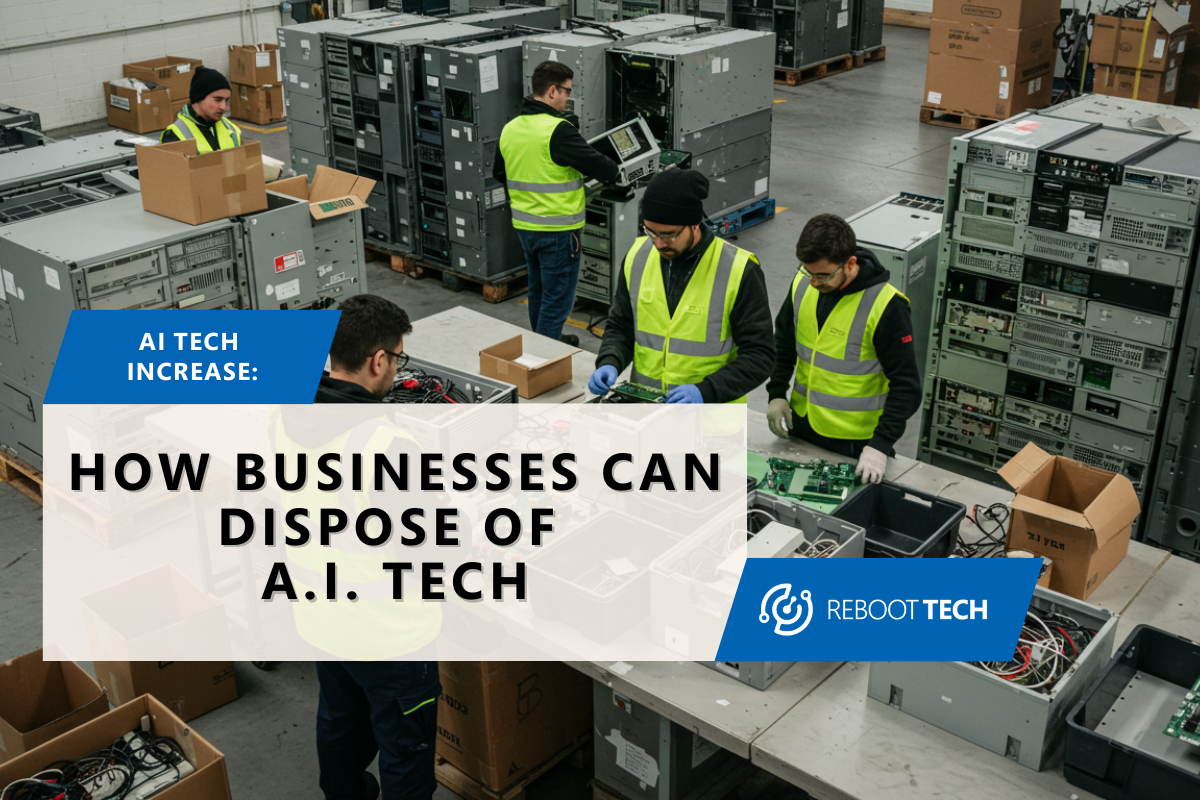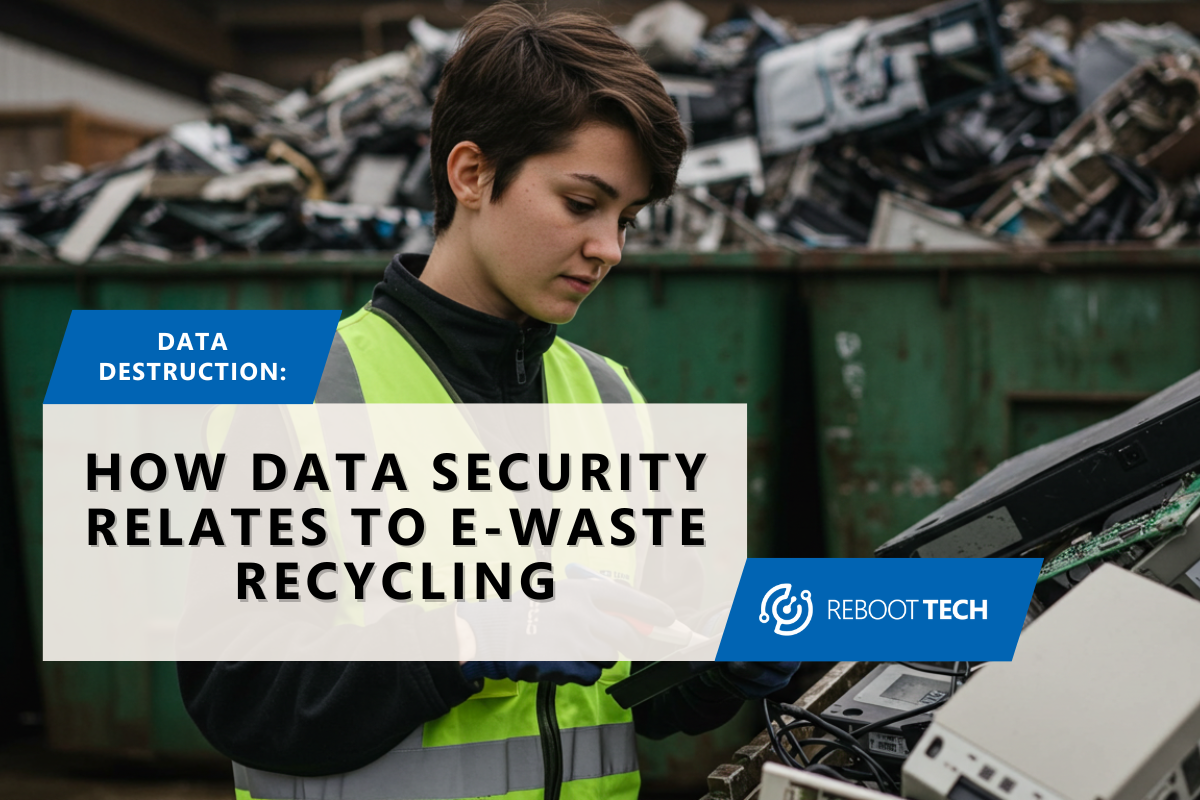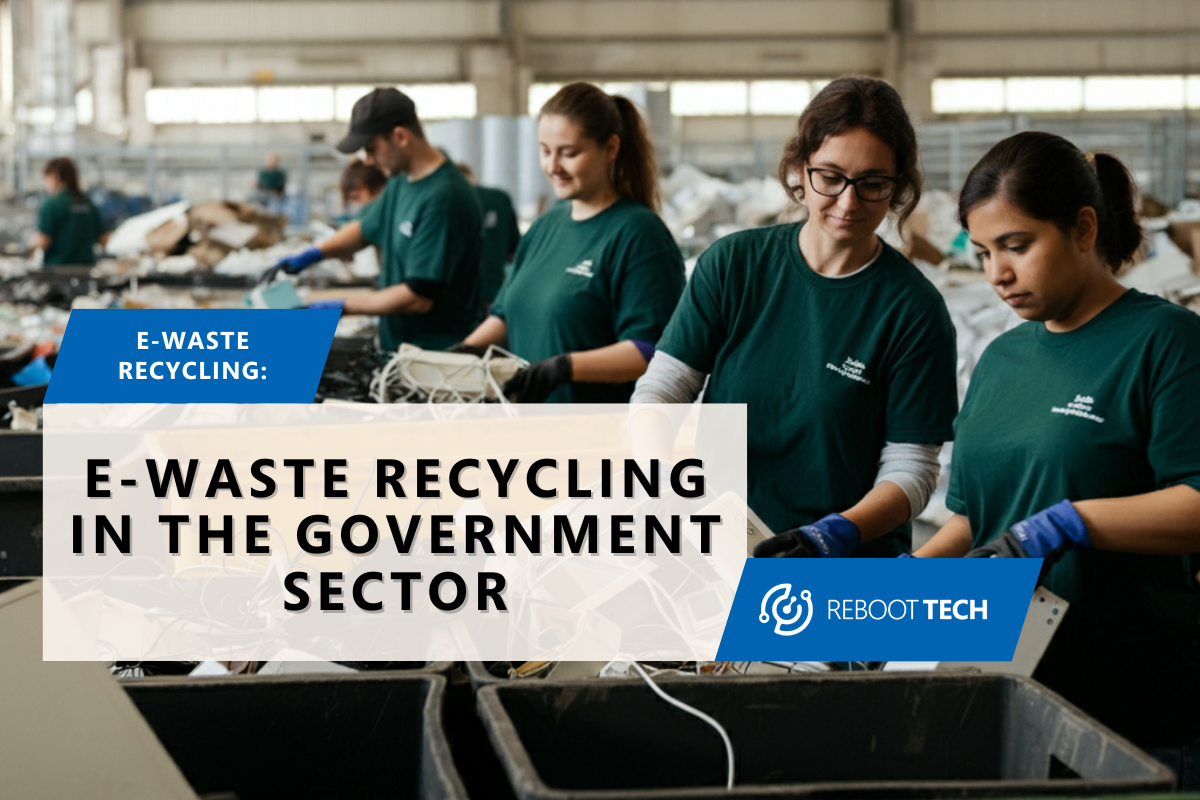
Government E-Waste Recycling: Why It’s Crucial For A Sustainable Future
As technology continues to advance, the challenge of managing electronic waste (e-waste) is growing. This is especially true in government offices. They use many types of electronic devices, like computers, servers, and security systems.
Once these devices reach the end of their life, they become e-waste. This e-waste is a serious issue that needs proper recycling and disposal to protect both the environment and sensitive data.
In this blog, we will explain why e-waste recycling is especially important for government agencies. We’ll discuss how e-waste affects various industries, the challenges government sectors face, and the benefits of working with certified e-waste recyclers like Reboot Tech. By the end of this article, you’ll know how government agencies can address the growing problem of e-waste and why it’s so important.
The Growing Problem Of E-Waste in Every Industry
E-waste is a problem that impacts every industry. From schools and businesses to healthcare providers and government agencies, all sectors generate e-waste. According to the United Nations University, global e-waste is expected to reach 74.7 million tons by 2030. This shows just how important it is to find better ways to manage this waste stream.
In many industries, technology is constantly being updated. For example, schools now give students laptops or tablets, something that seemed impossible just 15 years ago. Similarly, businesses frequently upgrade their devices to stay competitive. New technology means older devices get thrown out, leading to more e-waste.
The government sector is no exception. From federal agencies to local offices, the use of technology has grown, resulting in more electronic waste. If not handled properly, this e-waste can cause environmental damage and expose sensitive information like customer data or personal information. This makes recycling and disposal of electronics critical to managing the risks.
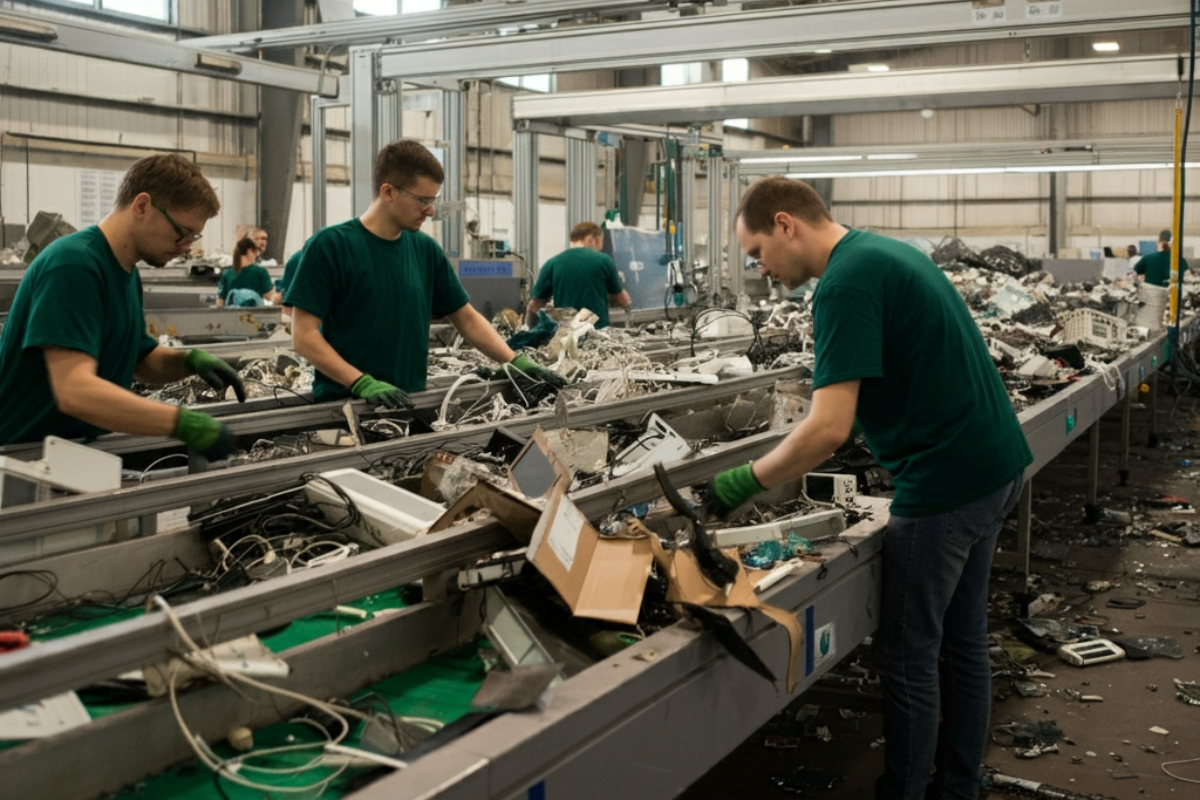
E-Waste in the Government Sector
Government agencies produce large amounts of e-waste due to their reliance on various electronics, from computers and phones to security and communication devices. In sectors like defense, law enforcement, and healthcare, the stakes are even higher because the devices often contain sensitive data that must be protected from data breaches.
If this personal information isn’t securely wiped or destroyed before disposal, it could lead to unauthorized access or identity theft. For federal government agencies, secure data destruction is a must. Without proper recycling methods, there’s a risk of exposing sensitive or confidential information, leading to security threats.
Government sectors also face unique challenges when managing e-waste because they have to follow strict data protection laws and regulations. The Health Insurance Portability and Accountability Act (HIPAA) and General Data Protection Regulations (GDPR) are examples of rules that federal agencies need to follow when dealing with sensitive data. Failing to meet these standards can lead to legal consequences and data breaches.
Why E-Waste Recycling is Essential for Government Agencies
E-waste recycling offers many benefits, especially for the government sector. Here’s why recycling electronic waste is so crucial for government agencies:
1. Protecting Sensitive Data: Government offices handle a lot of classified information, especially in sectors like defense and intelligence. E-waste recycling ensures that all sensitive data, including customer data, is wiped clean or that the devices are physically destroyed. Certified recyclers like Reboot Tech offer secure data destruction services, helping agencies avoid data breaches.

2. Regulatory Compliance: Government agencies must follow strict data privacy rules like HIPAA and GDPR. Recycling ensures that personal information is properly destroyed during the recycling process, which helps agencies meet these legal standards. Federal government agencies can also avoid fines by following proper data disposal practices.
3. Cost Savings: Recycling e-waste can save government agencies money. Instead of dumping old electronics in landfills, where they become environmental hazards, e-waste recycling allows for valuable materials like metals to be recovered. These recycled materials can reduce the need for new resources, benefiting both the environment and the agency’s bottom line.
4. Environmental Protection: E-waste contains toxic chemicals like mercury, lead, and cadmium. If these materials are not disposed of properly, they can harm the environment. By collecting and recycling electronic waste, government agencies can help reduce environmental damage and promote sustainability.
5. Resource Conservation: Recycling e-waste helps conserve natural resources. Many electronic devices contain rare earth elements that are important for making new products. When government agencies recycle their e-waste, it reduces the need for mining and extraction of new raw materials, protecting the environment and supply chains.
Solving the E-Waste Problem in Government Agencies
To tackle the e-waste problem, government agencies need to work with certified recyclers who understand the importance of secure data destruction and responsible e-waste disposal. Certified e-waste recyclers like Reboot Tech provide a range of services designed to help government organizations manage their e-waste safely and securely.
Here’s how Reboot Tech can help:
1. Secure Data Destruction: The most important aspect of e-waste recycling in government is protecting sensitive data. Reboot Tech specializes in secure data destruction, including data wiping and physically shredding hard drives and other storage devices. This ensures that personal information and other sensitive data are completely erased, preventing data breaches.
2. Environmentally Responsible Disposal: Reboot Tech follows the guidelines set by the EPA, ISO, and other regulatory bodies to ensure that all e-waste is handled responsibly. This reduces the risk of releasing toxic chemicals into the environment and helps agencies meet their sustainability goals.
3. Comprehensive Recycling Services: Reboot Tech offers a full range of services, from secure data destruction to IT asset disposition (ITAD). This means that government agencies can safely recycle their outdated electronics while also clearing space for newer technology. Reboot Tech handles everything, from bulk e-waste recycling to refurbishing devices.
4. Certificates and Compliance: After processing e-waste, Reboot Tech provides government agencies with certificates of destruction and recycling. These certificates prove that data was securely destroyed and that devices were recycled in accordance with environmental regulations. This helps government agencies stay compliant with data protection and environmental laws.
A Path to a More Sustainable Future
Electronic waste recycling is not just about getting rid of old electronics. It’s important for building a future that’s sustainable and safe. Government agencies need to recycle their e-waste properly, especially when it comes to protecting important data and following the rules. This is why collecting and e-waste recycling is essential for the government sector.
By working with companies like Reboot Tech, government agencies can manage their e-waste responsibly. This helps prevent data breaches and reduces harm to the environment. It’s important for protecting national security, following the law, and saving resources.
Electronics recycling isn’t just about getting rid of old devices—it’s about ensuring that the devices are safely disposed of, the data is destroyed, and the environment is protected. By adopting responsible electronic products recycling practices, we can all help secure a safer and more sustainable future and reduce e-waste!
